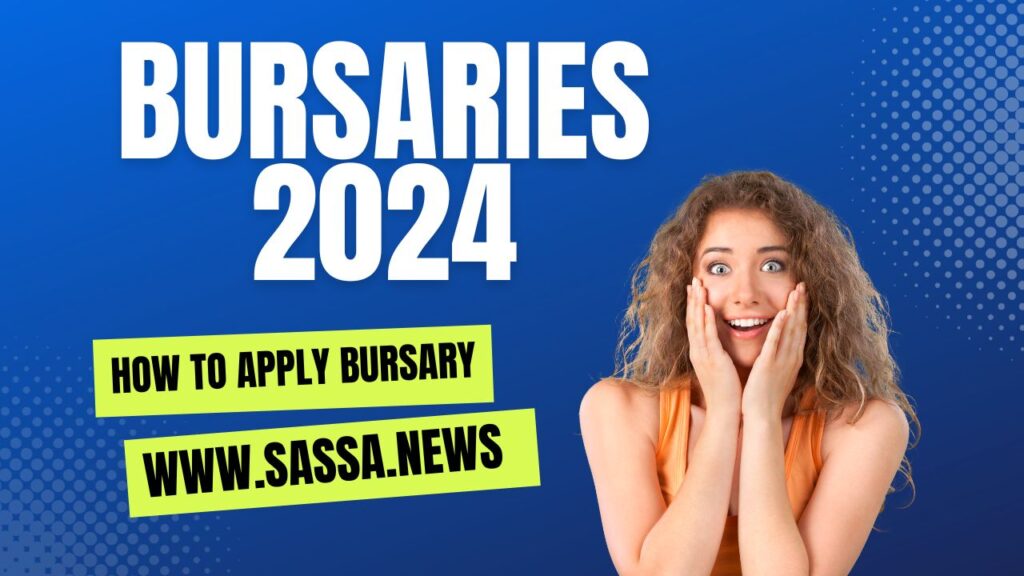As we are heading into 2024 and the commencement of the 2024 academic year inches closer and closer, thousands of people are planning for their studies. One aspect, and a rather important one, is securing funding.
A bursary goes a long way in making sure that higher education is not only accessible, but has a reduced level of stress. Bursaries sometimes also not only pay for tuition fees but cover other student expenses as well.
There are currently many bursaries which are still open for 2024 studies, let’s uncover these.
Funza Lushaka Bursary Scheme
Applications to benefit from the Funza Lushaka Bursary Scheme are now open for the 2024 academic year. This is the perfect bursary for teaching courses.
This bursary covers tuition fees, accommodation including meals, learning materials and they provide a monthly living allowance for living expenses.
NSFAS Bursary
NSFAS is the National Student Financial Aid Scheme Nsfas which provides financial aid in the form of a bursary fund for higher education students through NSFAS.
NSFAS gives bursaries to students from poor and working class backgrounds which goes beyond just paying for your fees. It will also cover registration, accommodation, transport, books and other needs through NSFAS allowances.
How To Submit A 2024 NSFAS Application
Step 1: Create a myNSFAS account
Step 2: Click on the ‘Apply’ tab to update your personal information
Step 3: Upload your application supporting documents
Step 4: Submit your application
To enhance accessibility, NSFAS will introduce a mobile application for 2024 applications. The application will only initially be compatible with iPhone operating systems (iOS) and Android, later extending to HUAWEI devices.
The mobile app, set to include biometric capabilities later in the year, allows students to track their application statuses and funding through WhatsApp at 078 519 8006 and USSD at 12067327#.
Who Qualifies For NSFAS
To qualify for NSFAS, applicants must be South African, enrolled in an approved course at a public university or Technical and Vocational Education and Training (TVET) college and not exceed the household income threshold.
Applicants may not have a household income exceeding R350,000 while disabled students may not have a household income that exceeds R600,000. The latest data from SARS will help NSFAS verify if applicants meet the household income threshold.
How To Check Your NSFAS Status
Step 1: Visit the myNSFAS student portal.
Step 2: Enter your username and password on the NSFAS website and then click SIGN IN
Step 3: Click on Track Funding Progress to check your NSFAS application status.
If your application for NSFAS is rejected, you have the right to submit a NSFAS appeal application. You will be provided with the reason your funding application was rejected.
How To Submit A NSFAS Appeal
Step 1: Visit myNSFAS website.
Step 2: Log into your myNSFAS account.
Step 3: Click the ‘Track Funding Progress’ option.
Step 4: Check the application progress tabs.
If your application status reflects an unsuccessful message, you may submit an appeal by clicking on the ‘Submit Appeal Tab’.
Once you are on the ‘Application Appeal’ page, you can see the reason for your unsuccessful application status.
Step 5: Choose the appeal reason.
Step 6: Upload certified supporting documents to support your reason.
Step 7: Click ‘Submit Appeal’.
Who Can Submit A NSFAS Appeal
A student whose application for financial aid is rejected, or the financial aid for a continuing student is withdrawn can submit a NSFAS appeal. NSFAS warned that appeals will only be considered for students who have applied for NSFAS funding.
The appeal decisions are subject to budget availability.
Who Cannot Submit A NSFAS Appeal?
Students can not submit a NSFAS appeal application if they are registered for a qualification that NSFAS does not fund or if they have reached N+2 (or N+3 in the case of students with disabilities).
They will also not consider appeal applications where the student is a gap year student to whom NSFAS previously denied financial aid because they did not meet the academic eligibility criteria.
The appeal will also not be considered if the institution has not submitted its registration record to NSFAS or has submitted an incorrect registration record such enquiries should be directed to the institution.
Why NSFAS Applications Are Opening So Late
NSFAS says the decision to open the application process in November aims to expedite decision-making processes by allowing for shorter turnaround times. Opening applications in November also aligns with the financial eligibility assessment, which requires updated information from the South African Revenue Service (SARS).


